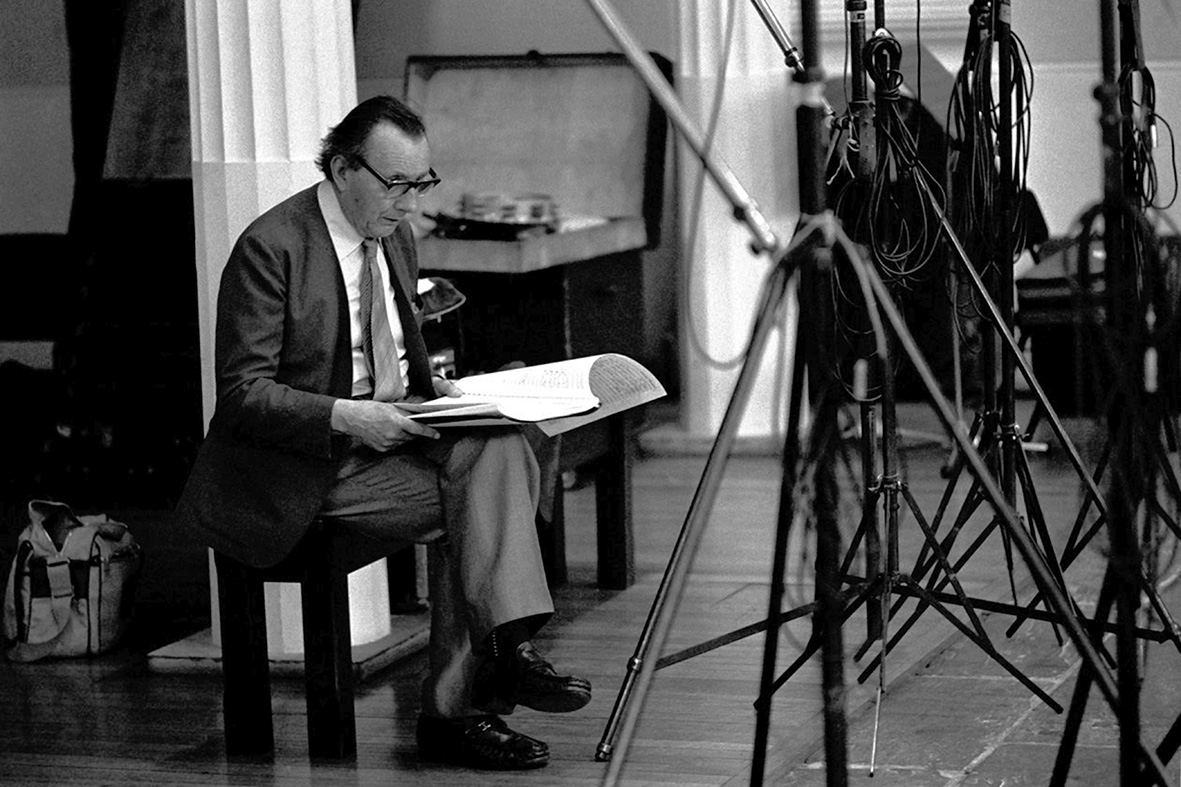An American perspective on Lennox Berkeley
Terry Teachout of the Wall Street Journal discovers Lennox Berkeley.
If your experience has been at all like mine, then the coming of the coronavirus pandemic gave you a powerful taste for the artistic equivalent of comfort food. I found myself watching familiar movies, re-reading familiar novels, listening to familiar music – anything to maintain a sense of continuity with a past that now seems increasingly remote.
In time, though, my cultural curiosity reasserted itself, and in recent weeks I’ve been binge-listening to the music of Lennox Berkeley (pronounced BARK-lee), whose work was all but unknown to me a few months ago. Not that there’s anything surprising about that: Berkeley’s elegant yet excitingly vital scores are rarely heard in the U.S., where Ralph Vaughan Williams, William Walton and Benjamin Britten are the only modern English classical composers who get performed with any regularity. Yet Berkeley, who died in 1989 at age 86, was both prolific and widely admired in England, and many leading performers – among them Dennis Brain, Julian Bream, James Galway, Yehudi Menuhin and Peter Pears – played and sang his work. Fortunately, their recorded performances, as well as others of similarly high quality, are readily available in this country and can also be heard on YouTube, making it quite easy to get to know the music of one of the 20th century’s most underrated composers.

I suspect that the main reason why Berkeley’s music has failed to travel outside his native land is that it sounds nothing like what you expect to hear from an English composer. Unlike Vaughan Williams and Britten, whose music is deeply rooted in English folk song and other English musical traditions, he was a European-style neo-classicist through and through. A student of Nadia Boulanger, the great French composition teacher whose best-known pupils included Aaron Copland and Darius Milhaud, Berkeley was strongly influenced by such French composers as Maurice Ravel and Francis Poulenc – both of whom he knew personally – as well as Igor Stravinsky, Boulanger’s idol, whose crisp middle-period idiom he learned from her.
Yet there is nothing derivative about the delicious little Guitar Sonatina that Berkeley wrote in 1957 for Bream, or the 1939 String Serenade, his most frequently programmed instrumental piece, whose bright, engaging clarity evokes Stravinsky without stooping to direct imitation. ‘True originality in an artist does not consist in his being peculiar, but in his being peculiar to himself,’ Berkeley wrote in a 1943 article about Britten, of whose music he was one of the earliest advocates (and to whom he was a long-time friend). He surely had himself in mind as well.
Not only was Berkeley a marvellous composer, but he led an intriguing private life, one chronicled to extremely readable effect in Lennox & Freda, Tony Scotland’s 2010 dual biography of the composer and his wife, who married in 1946, had three sons and were by all accounts the happiest of couples. Everyone who knew Berkeley in his youth was startled by this development, for his previous relationships had all been with men and he moved in elite gay circles (he was often to be seen at Somerset Maugham’s villa on the French Riviera, a resort that Maugham himself wittily described as “a sunny place for shady people”). At the same time, he was also a deeply religious man with a mystical streak who converted to Roman Catholicism in 1929, and he appears prior to his marriage to have had considerable difficulty reconciling the two sides of his nature.
Yet not only was Berkeley’s marriage happy, but it unlocked a part of his musical personality to which he had not previously had access: He started writing sacred choral music of the highest quality, including two exquisite anthems, I Sing of a Maiden (1966) and The Lord Is My Shepherd (1975), that remain to this day beloved English church-choir staples. His friends believed that his resulting reconciliation with the Church made it possible for him to do memorable work in a musical genre with which he had hitherto been ill at ease.
That there continued to be troubled undercurrents in the composer’s psyche is hinted at in the stern first movement of his Trio for Violin, Horn and Piano (1953), which he wrote for Dennis Brain. But one need not know anything about Berkeley to be impressed by its rigor and dark strength, or to delight in any of his less obviously demanding works. That they are so little known on this side of the Atlantic is our loss: I’ve yet to hear a piece by Berkeley that I didn’t like, and the more of his works I hear, the more I want to hear. In music as in life, he followed his own distinctive path, and discovering him has been for me an unexpected pleasure of life in lockdown.